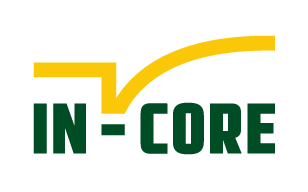Residential building recovery#
Description
This analysis computes the recovery time needed for each residential building from any damage states to achieve full restoration. Currently, supported hazards are tornadoes.
The methodology incorporates a multi-layer Monte Carlo simulation approach and determines the two-step recovery time which includes both the delay period and repair period. The delay model was modified based on the REDi framework and calculated the end-result outcomes resulting from delay impeding factors such as post-disaster inspection, insurance claims, and building permit issuance. The repair model followed the FEMA P-58 approach and ultimately utilized fragility functions from Koliou and van de Lindt (2020).
The outputs of this analysis is a CSV file with time-stepping recovery probabilities at the building level.
Contributors
Science: Wanting Lisa Wang, John W. van de Lindt
Implementation: Wanting Lisa Wang, Gowtham Naraharisetty, and NCSA IN-CORE Dev Team
Related publications
Wang, Wanting Lisa, and John W. van de Lindt. “Quantitative Modeling of Residential Building Disaster Recovery and Effects of Pre-and Post-event Policies.” International Journal of Disaster Risk Reduction (2021): 102259.
Koliou, M. and J.W. van de Lindt. (2020). “Development of Building Restoration Functions for use in Community Recovery Planning to Tornadoes.”, ASCE Natural Hazards Review, Vol 21 (2) doi.org10.1061/(ASCE)NH.1527-6996.0000361.
Input parameters
key name |
type |
name |
description |
|---|---|---|---|
|
|
Result name |
Name of the result dataset. |
|
|
Samples number |
Number of sample scenarios. |
|
|
Seed |
Initial seed for the probabilistic model. |
|
|
Repair key |
A repair key to use in mapping dataset. |
Input datasets
key name |
type |
name |
description |
|---|---|---|---|
|
|
Building dataset |
A building dataset. |
|
DFR3 Mapping Set |
DFR3 Mapping Set. |
|
|
Damage states |
Sample damage states. |
|
|
Socio demographic |
Socio-demographic data with household income group predictions. |
|
|
Financial resources |
Financial resources by household income groups. |
|
|
Delay factors |
Delay impeding factors such as post-disaster inspection, insurance claim, |
Output datasets
key name |
type |
parent key |
name |
description |
|---|---|---|---|---|
|
Results |
Time Stepping Recovery |
A dataset containing results (format: CSV) |
|
|
Results |
Total Delay |
A dataset containing results (format: CSV) |
|
|
Results |
Recovery |
A dataset containing results (format: CSV) |
(* required)
Execution
code snippet:
# Create Residential building recovery instance
res_recovery = ResidentialBuildingRecovery(client)
# Load input building infrastructure dataset
res_recovery.load_remote_input_dataset("buildings", buildings)
# Load repair mapping
repair_service = RepairService(client)
mapping_set = MappingSet(repair_service.get_mapping(mapping_id))
res_recovery.set_input_dataset('dfr3_mapping_set', mapping_set)
# Load input datasets
res_recovery.load_remote_input_dataset("sample_damage_states", sample_damage_states)
res_recovery.load_remote_input_dataset("socio_demographic_data", socio_demographic_data)
res_recovery.load_remote_input_dataset("financial_resources", financial_resources)
res_recovery.load_remote_input_dataset("delay_factors", delay_factors)
# Specify the result name
result_name = "joplin_recovery"
# Set analysis parameters
res_recovery.set_parameter("result_name", result_name)
res_recovery.set_parameter("seed", seed)
res_recovery.set_parameter("num_samples", 10)
# Run residential recovery analysis
res_recovery.run_analysis()
full analysis: residential_building_recovery.ipynb
